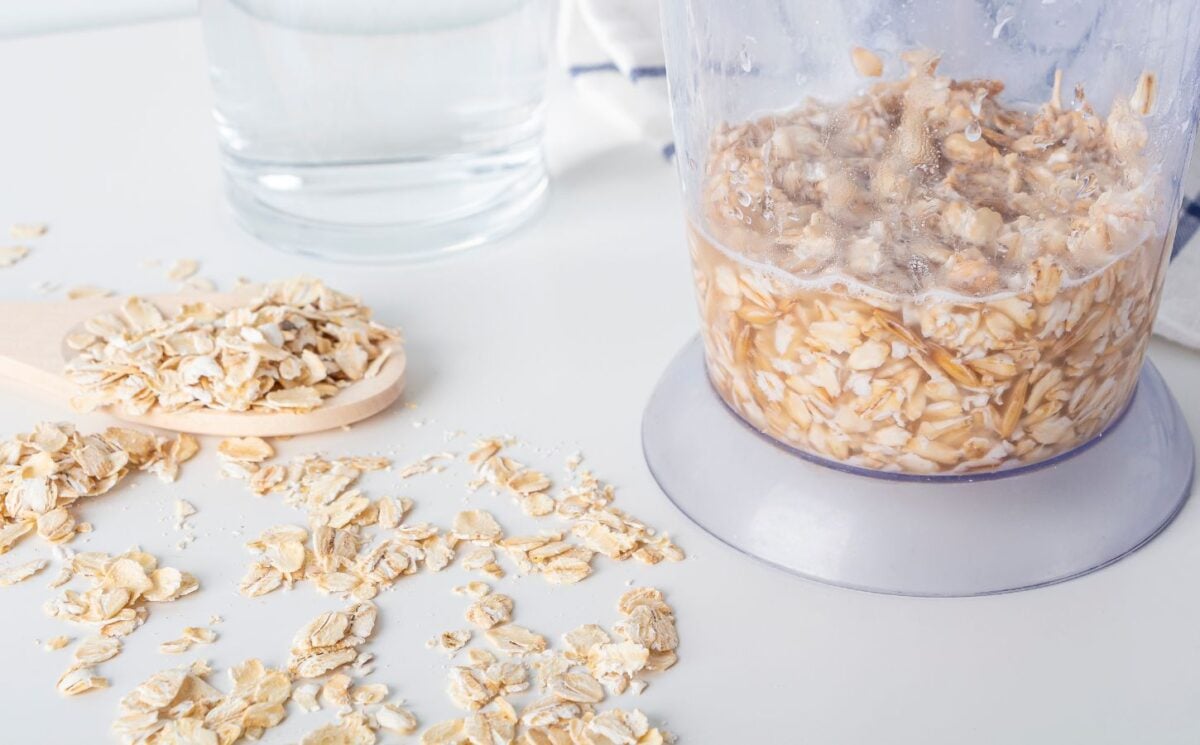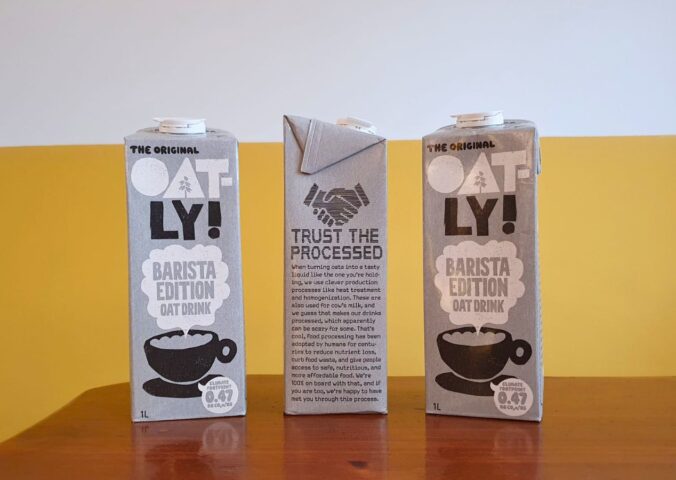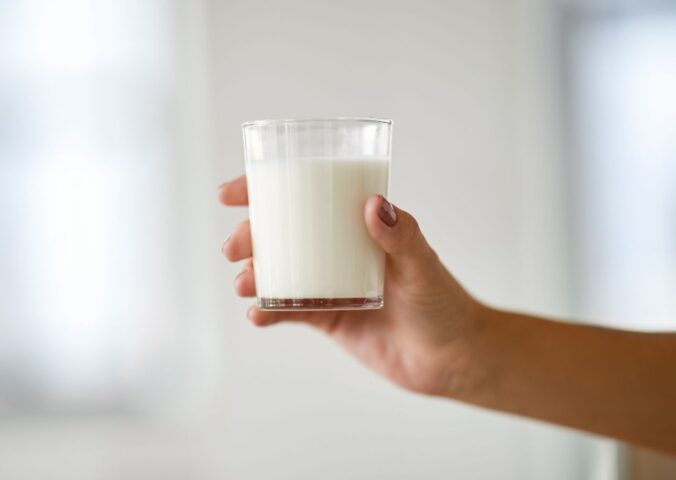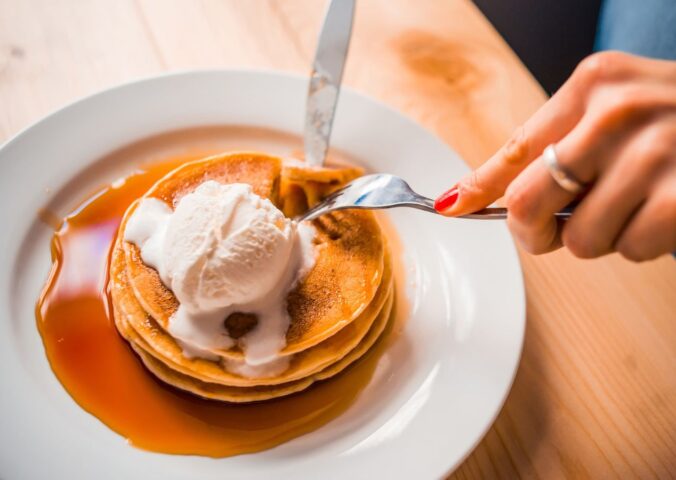A so-called weight-loss drink nicknamed “oatzempic” has been trending on social media over the last six months or so, inspiring many users to try it at home.
Read more: Dr Greger Examines Why Plant-Based Diets Are Better Than Ozempic In New Book
Oatzempic, or the “oatzempic challenge,” takes its name from Ozempic, which is a branded form of the widely prescribed antidiabetic medication semaglutide.
The medicine works by mimicking the hormone GLP-1, which is released from the gut after eating. Taking semaglutide helps people with type-2 diabetes regulate insulin, but it has also been found to help modulate appetite and gained notoriety as a potential weight loss drug.
According to some media users, drinking “oatzempic” can also prompt weight loss, with some referring to the beverage as “budget Ozempic.” Typically, recipes include a half cup of oats, one cup of water, and the juice from half a lime, blended into a smoothie.
Read more: Why Are People Quitting Keto And Carnivore Diets?
Is ‘oatzempic’ safe to drink?
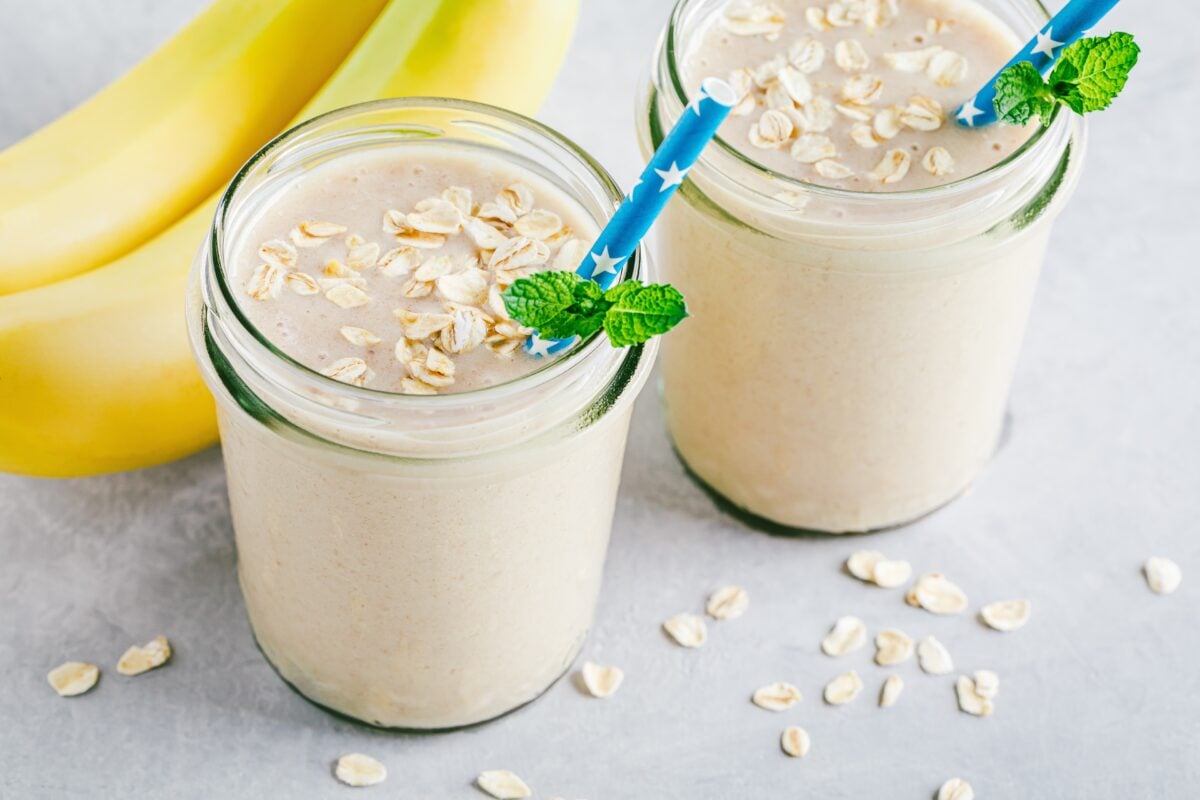
Compared to some trends, the ingredients included in “oatzempic” are – for most people – harmless, plant-based whole foods. In fact, both oats and lime juice have been linked to several potential health benefits, including a reduction of heart disease risk and more.
This specific combination of fiber-rich oats, water, and citric acid is thought to help regulate appetite and promote satiety. However, most health experts urge extreme caution when it comes to nutrition advice, digital health trends, and any rapid weight loss-related diets that appear on social media, including untested meal replacements.
Furthermore, drinking oats may cause a spike in blood sugar, which would be particularly harmful to people with diabetes – those for whom semaglutide was first licensed.
Meanwhile, the citric acid of “oatzempic” may cause gastric distress. In an article about the trending beverage for the BBC, registered dietician Tai Ibitoye noted that it is “important to recognize that oats are far less powerful than the medication.”
Speaking to Healthline, Dr Jill Barat, a pharmacist at Pharmedico Pharmacy, noted that people would be just as likely to lose weight by simply eating a bowl of oatmeal. Having a meal instead of a shake or replacer is also less likely to cause nutrient deficiencies.
Social media and digital misinformation
While social media is widely celebrated as a free source of information, it is also responsible for widespread misinformation. A 2022 study found that nearly 20 percent of all videos presented as search results in TikTok contained misinformation of some kind.
Meanwhile, a recent study by AI-based fitness coach Zing found that 56 percent of Generation Z (born between 1997 and 2012) use TikTok for advice on wellness and diet.
One in three get more wellness advice from TikTok than anywhere else, and one in three also do not double-check or verify the information that they source via social media. Around one in 11 reported health issues after following TikTok wellness advice.
“While the oatzempic drink may be a fun way to switch up your oats from time to time, there is no quick fix for weight loss, and every individual is different in terms of their daily nutritional needs,” Dr Michelle Cardel, the head of global clinical research and nutrition at WeightWatchers, told Glamour in April of this year.
“Even the FDA-approved GLP-1 medications must be paired with lifestyle changes such as an increased focus on dietary protein and fiber as well as strength training,” she added.
Read more: What Are ‘Plant Points’ – And Why Is Everyone Recommending Them?
